The penultimate episode of Netflix’s ‘Tomorrow and I’ is also its most whimsical entry, walking the tightrope between absurd comedy and depressing dystopia. Titled ‘Octopus Girl,’ the story delves into an ecologically devastated world where ceaseless rain has covered the Earth’s surfaces for the past two years. Consequently, cities have become submerged, and coastlines have disappeared under the sea. In Bangkok, two young girls named Pang and Mook, living in the lower districts, join a singing competition to escape the submerged areas of the city. However, by the end of the episode, their efforts take them on a whole new journey as a host of government secrets emerge while another natural disaster waits around the corner. SPOILERS AHEAD.
Pang’s Singing Foray Provides Hope to the Under City Dwellers
After a 2-year rain cycle, the world has become submerged underwater. Special infrastructure has been installed in different cities to handle the rising sea level. In Bangkok, inequality has sprung up as the rich and elite live in the elevated districts free from the rising water, while in the under-city, people live in watery slums close to the municipal drainage system. Two young girls, Pang and Mook, live a joyous existence in their hovel neighborhood, attending classes by day and playing in their neighborhood during the night. They live in a community of shared family members, where everyone looks out for each other. However, the district is home to a strain of infections and viruses constantly proliferating in the unhygienic ghettos of the undercity.
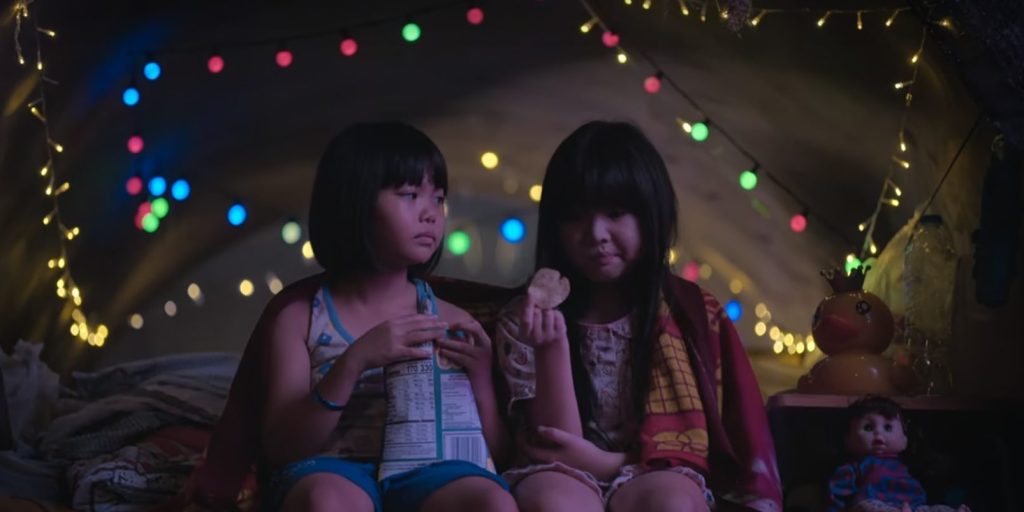
While Pang is more reserved and mature in her outlook, Mook exudes an infectious sense of energy and exuberance. In the story’s beginning, she is bitten by a mosquito carrying a new strain of malaria virus. Subsequently, she develops rashes and itch marks across her skin but remains bubbly and happy regardless. Meanwhile, Pang worries that the world is already too broken and that future generations of humans will have to make do with the effects of global warming that previous generations have seeded. In their watery existence, termed “rainpocalypse,” the two girls find some solace in their unbreakable friendship. One evening, a new hope arrives when Pang and Mook learn about an upcoming singing competition that might help the two girls escape their meager existence.
As Pang is a talented singer by birth, she decides to enlist in the competition after receiving encouragement from Mook. The two skip their school and attend the competition, where Pang blows away the judges with her mesmerizing vocals. In the aftermath, her voice and story become a public sensation as people learn about the plight of the under-city dwellers and how the government has left people without any avenue of escape. The swell of emotion and audience reception around Pang eventually elevates her to such a rank that even the government notices. The President plans a school visit to meet Pang, a gesture that undoubtedly has political implications behind it. However, before the visit can be completed, a storm breaks out in the lower city, causing the majority of slums to be washed away.
Why Does the President Wear a Mask?
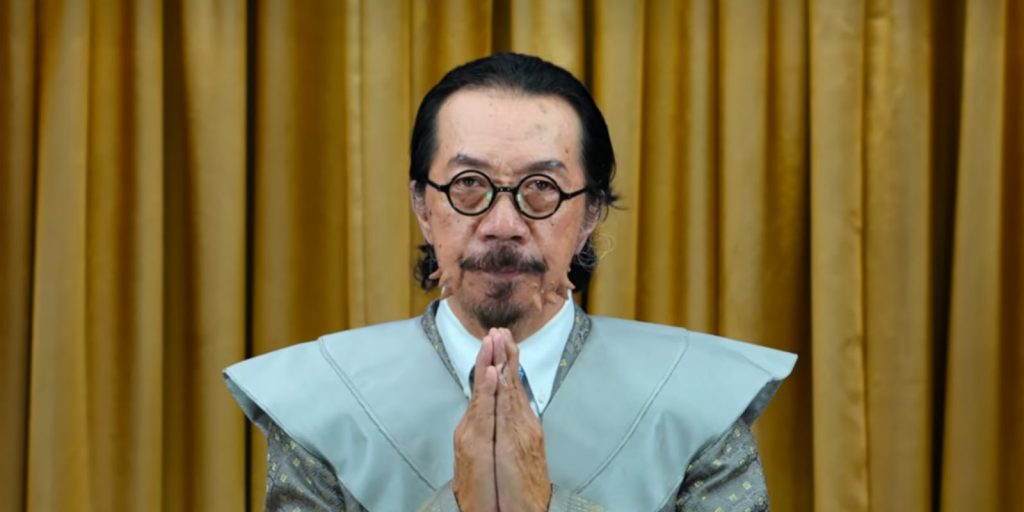
During the storm, Pang and Mook end up losing their house as the sea claims the area. In the aftermath, the two girls and their family find shelter inside a building in the Neo Khlong Toei district. Moments later, the President’s people arrive to take Pang with them. At first, everyone is surprised at the sequence of events, not really understanding what is happening. Everything becomes clearer when the President himself appears among the crowd. He walks in and embraces Mook, wearing a mask over his mouth. At first, the gesture of him hugging Mook is played up by the watching crowd and the TV cameras as a big political statement. However, when the President notices the rash marks on Mook, he pushes her away, accidentally ripping the mask and revealing the tentacles hanging off his chin.
Earlier in the narrative, the government revealed through a TV program that America was deploying a new vaccine called the AquaVac to help people around the world be safe from water-borne diseases. However, the President mocked the vaccine for its untested nature and rejected its use in Thailand. Intriguingly, the vaccine’s main side-effect, the growth of tentacles from one’s chin, discouraged the common public from mounting much of a protest against the decision to ban the vaccine. Therefore, when the President’s mask is ripped off to reveal the tentacles, people become aware that the nation’s leader has been secretly using AquaVac, which goes directly against the directive he set in front of the media.
Do Pang and Mook Get a State Built in Their Honor?
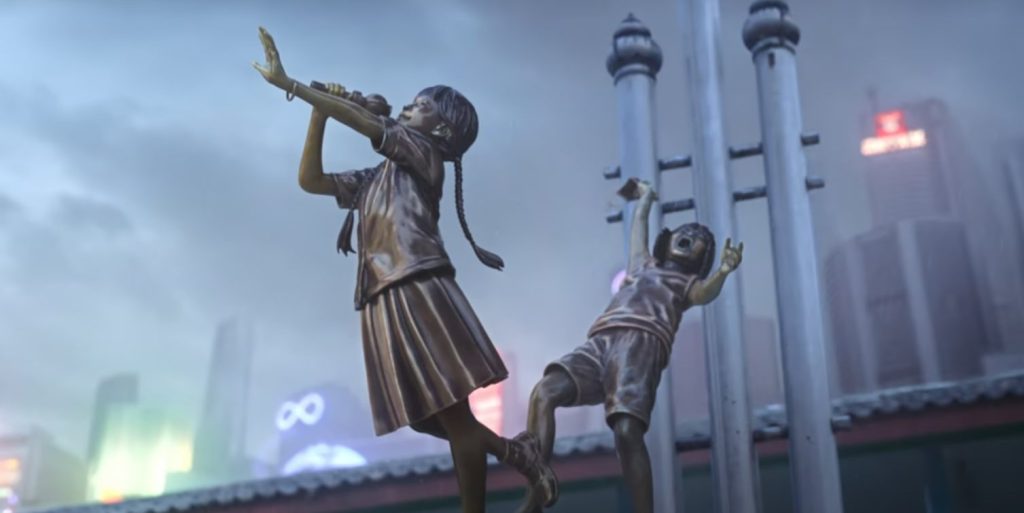
After the revelation of the President’s duplicitous nature, further investigations are conducted into the other government members and the President’s close associates. Everyone realizes that the higher echelon members are all linked to the AquaVac conspiracy and have been secretly using the vaccine to bolster their immunity against diseases and infections. As a result of the probe, the President is left with no choice but to resign from his position due to the untenable nature of his post. Shortly after, the AquaVac vaccines are handed over to every member of society, allowing everyone to protect themselves from water-borne diseases. Meanwhile, Pang and Mook are serenaded as heroes in their community and in the city for their invaluable role in exposing the corruption, which culminates in a statue built in their honor.
The two girls are overjoyed at their friendship being memorialized through a landmark attraction. They also start using AquaVac, which leads to them developing tentacles underneath their chin, explaining the episode’s title. More importantly, it also means that Mook is saved from her malaria infection, which had completely taken over her body by the end. Thus, exposing the President’s conspiracy helped the two girls elevate their status and also saved their own lives in the process. After a time jump, it is evident that the Neo Khlong Toei district has been redesigned with better equipment, albeit still facing some similar issues. Still, it seems unlikely that the under-city dwellers will face another flooding or storm situation anytime soon.
Does the Rain Apocalypse End? Does Humanity Survive?
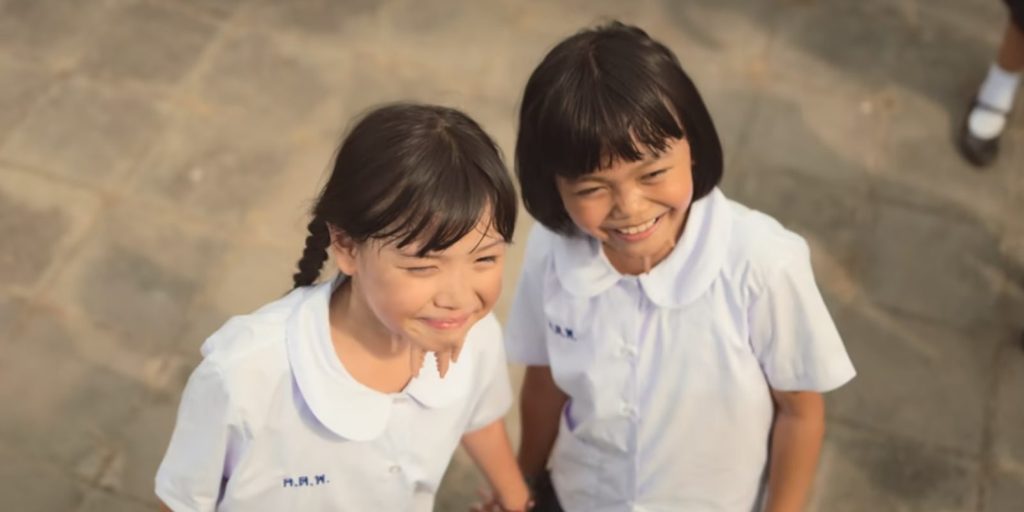
At the end of ‘Octopus Girl,’ a monumental development occurs as humanity watches in trepidation while the clouds part and the rain stops falling. After two years of constant rain, the cessation of the downpour triggers a jubilant and triumphant mood among everyone. People around the world are overjoyed to see the first rays of sunshine slip through the open skies. In their depressing under-city, Pang and Mook rush to their school windows to watch the Sun for the first time in a long time. As everyone gathers on the streets, it is the perfect ending for humanity and a chance to rectify the errors that got them to such a difficult place. However, this proves to be a false dawn as moments later, the Sun shows its true colors by unleashing its rage on humankind.
Fires begin sprouting everywhere, mostly confined to inanimate objects at first. As the intensity of the Sun keeps ratcheting, everything becomes flammable. Pandemonium hits the streets as huge flames break out everywhere, lighting everything on fire – houses, trees, people, and buildings. Pang and Mook watch the chaos around them in horror while trying their best to run towards some shelter. As the camera zooms out, the world’s surface is shown to be ablaze with flame and destruction. In such a situation, it seems impossible for anyone to survive. However, some might still find shelter underground, albeit unlikely. The horror of the fire suggests that after all the terrible things humans have unleashed on one another throughout the four episodes, it is best to burn everything down and begin again.
Read More: Tomorrow and I Episode 3 “Buddha Data” Ending, Explained: Why Does iBuddha Fail?

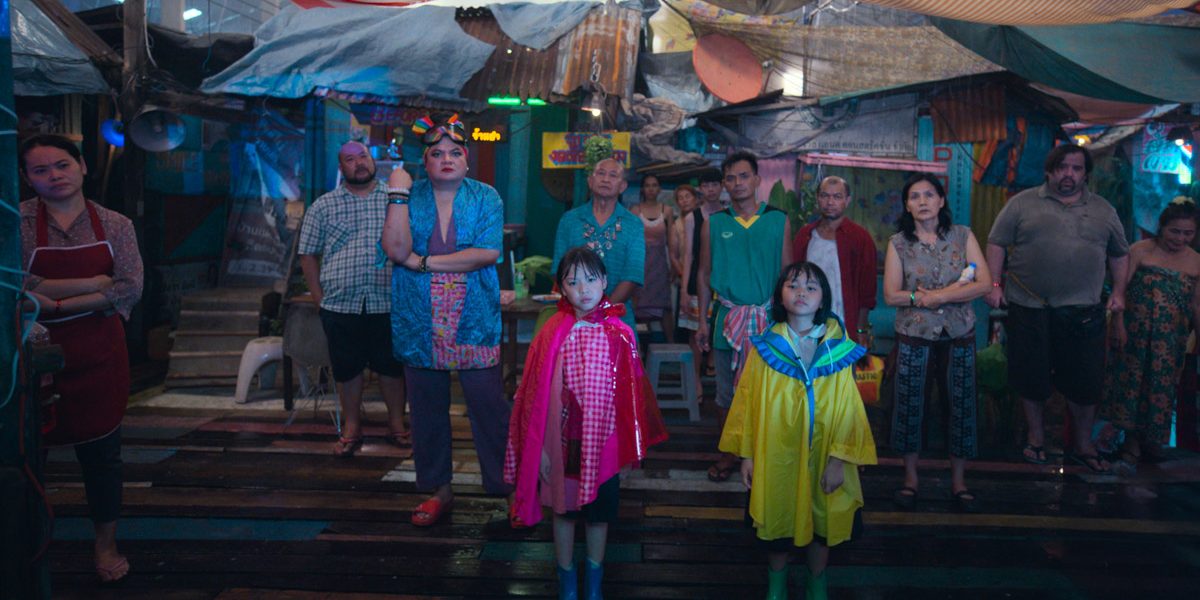
You must be logged in to post a comment.